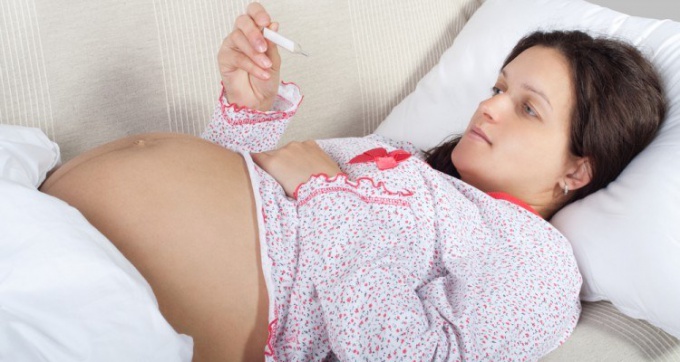Instruction
1
In the first trimester of pregnancy in women usually observed low-grade fever (37-37,5°C). During the first 12 weeks of pregnancy, such indicators are normal, so expectant mothers need not be afraid of a slight rise in temperature. It is easy to explain: the body adapts to the hormonal changes, blood increases the level of progesterone, which in turn leads to increase in temperature. Also physiological the temperature jump is a partial consequence of immunosuppression. Immunity of a pregnant woman weakened slightly in the first trimester, so that the body did not tear away the fruit, considering it a foreign body. The second trimester temperature readings usually come back to normal.
2
When do you start to worry? If the temperature of a pregnant woman rises to 38°C and above, an urgent need onthe brotherto be a doctor. The body of the expectant mother is extremely vulnerable and at risk of developing infections that can harm fetus. A strong increase in temperature is a signal of danger and the reason to undergo examination to identify the source of illness. To postpone the visit to the doctor is not necessary, especially with suspicious symptoms in the first trimester of pregnancy. High temperature in the beginning of pregnancy may lead to serious disorders in the development of the Central nervous system of the fetus. In the later stages these symptoms can cause the detachment of the placenta and endanger the life of the unborn child.
3
Also suspicious signal is a sharp decrease in body temperature to 36.3°C and below in the first trimester. This symptom is an indirect sign of threatened abortion, or may indicate the presence of endocrine diseases. Sometimes the reduced temperature is a result of vitamin deficiency, however it is not necessary to drink vitamins, without consulting your doctor. Only a doctor can determine the nutrient deficiencies in the body of the expectant mother and prescribe a suitable vitamin-mineral complex.
Useful advice
Bring down the fever folk remedies or use familiar products from home kit during pregnancy is not recommended. For the treatment should consult a physician: not all the money from the high temperature safe for the mother and her baby. The only permissible drug which can bring down the fever during pregnancy, paracetamol is, however, not recommended without prior consultation with your doctor.


